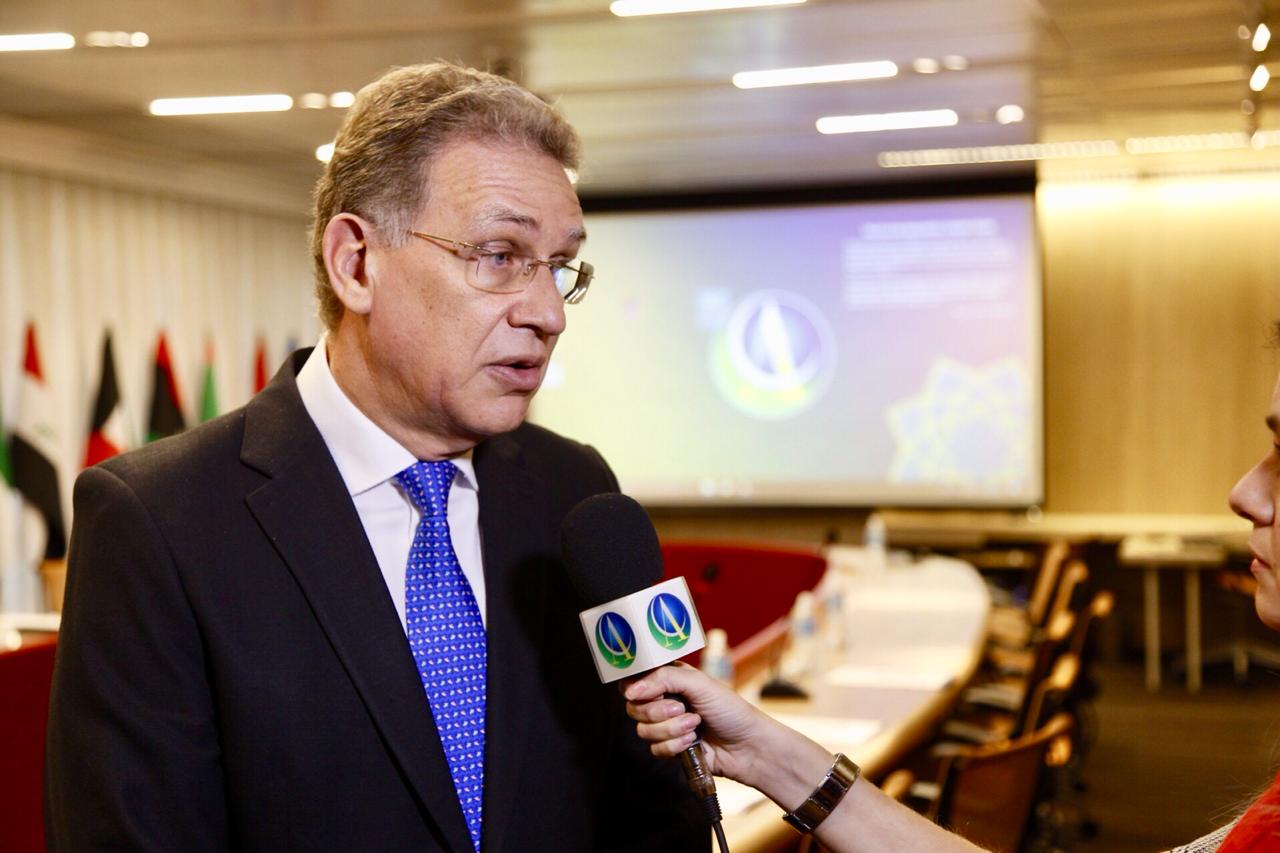São Paulo – Brazilian cooperation with Arab countries is about to enter a new stage: triangular cooperation, which should see Brazilians and Arabs join forces to work on projects in third-party countries. The news was conveyed to ANBA by ambassador Fernando Abreu, the undersecretary general for Africa and the Middle East with the Brazilian Ministry of Foreign Affairs, who visited the Arab Brazilian Chamber of Commerce in São Paulo this Tuesday (4).
October will see Abreu take office representing Brazil at the United Nations Food and Agriculture Organization (FAO), the World Food Programme (WFP) and the International Agricultural Development Fund (IADF). He celebrates the fact that a new type of Arab-Brazilian cooperation is expected to begin as he leaves his current post. Abreu championed the concept in the Foreign Ministry and the Brazilian Cooperation Agency (ABC).
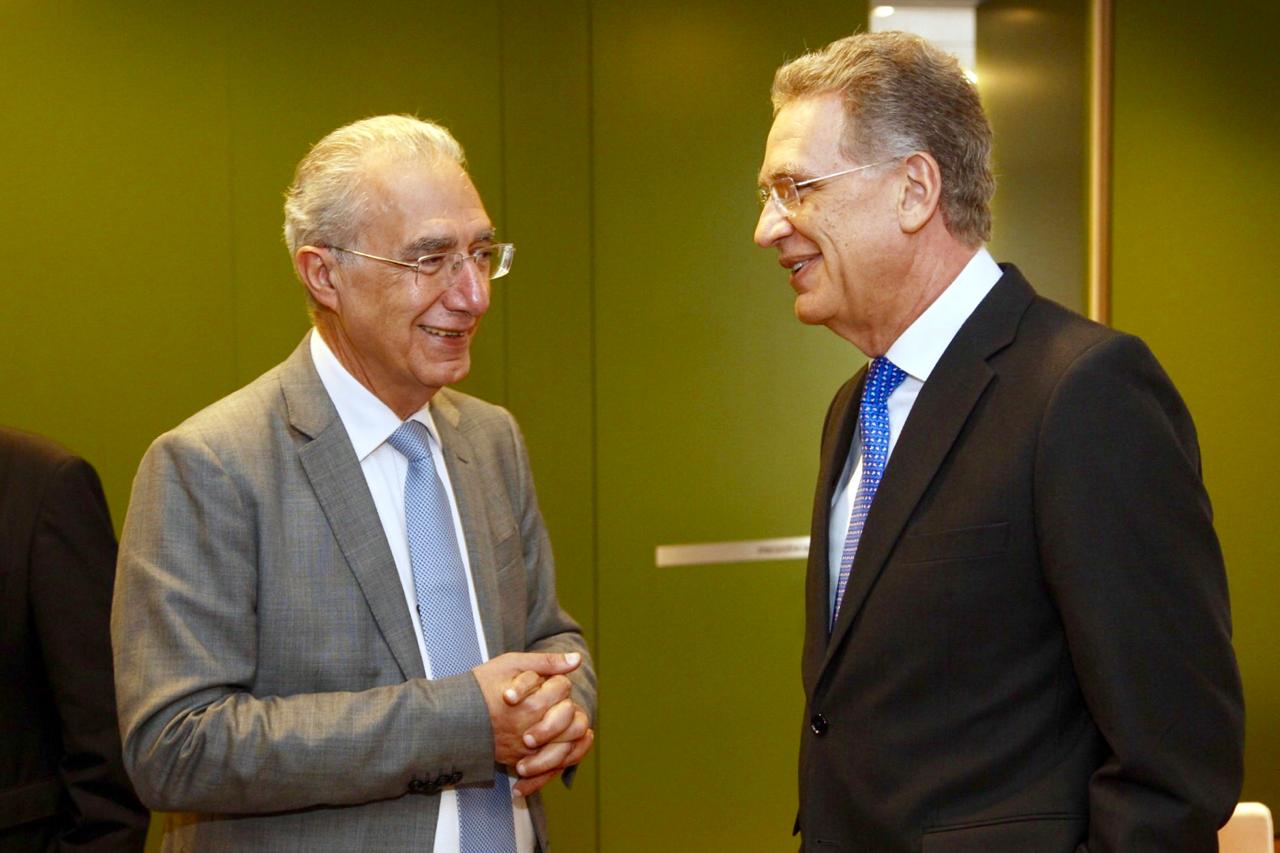
Prior to taking office as undersecretary general in 2015, Abreu served a three-year stint as director of ABC. The agency is the Foreign Ministry’s arm for technical cooperation projects between Brazil and other countries. Abreu reveals that Brazil and the UAE are looking into rolling out a project in Mozambique. Brazil is in similar partnerships with countries including Germany, Japan, Italy, the United Kingdom and the United States.
The ambassador believes a triangular cooperation project with a Gulf country could spawn similar actions with other Arab countries. The idea is for Brazil to contribute its technical capabilities and some financial resources, with Arab parties chiming in with the funds, in a mutually agreed country.
According to Abreu, Brazil reacts to cooperation requests in fields in which it boasts expertise and capability. “Agriculture, education, healthcare, environment and professional training are the most in-demand fields”, he says. An agricultural triangular cooperation project with an Arab country could generate income in the target country, as well as help ensure food security in the Middle East, Abreu argues.
The ambassador takes pride in Brazil’s and the ABC’s South-South cooperation model, which he claims is “much more thoughtful, cost-effective and efficient than the usual model, considering the results and the means to achieve them.” The usual model sees a donor country deploy consultants to implement projects with no active involvement from the receivers, with conditionalities like the enactment of laws and policies concerning human rights, commerce or investment.
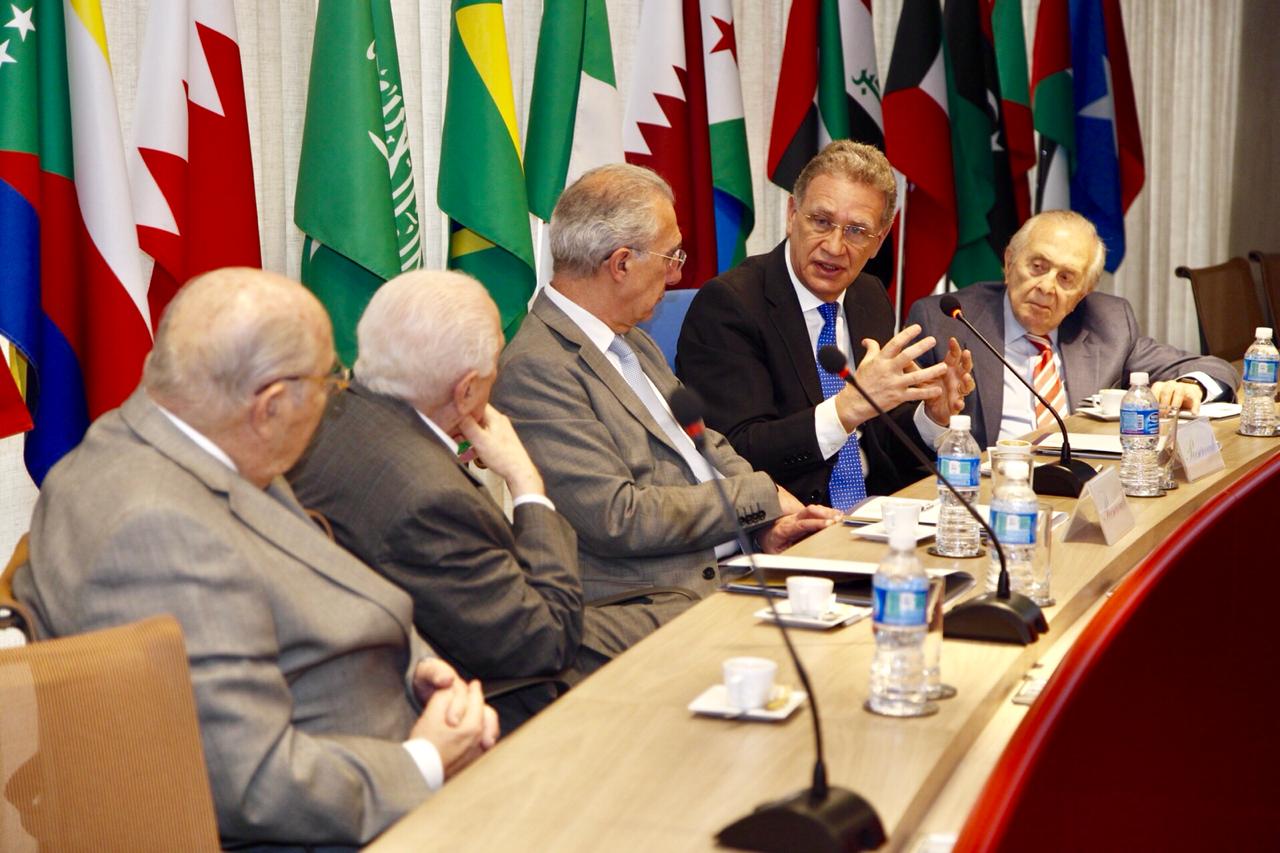
The South-South model is based on the sharing of experiences, he explains. “It’s a horizontal, mutually beneficial relationship,” he says. Brazil will get a request and find an organization that’s up to the task to join the project. Next, Brazilian technicians will travel to the country at hand, or vice-versa, and that is how the cooperation takes place. According to Abreu, the only costs involved are travel and accommodation, and the cooperation is not conditional.
Brazil’s new representative at the FAO, the WFP and the IADF was welcomed for a meeting by Arab Chamber C-level executives, led by president Rubens Hannun, and told them about the outlook for triangular cooperation with Arab countries. He contemplated working in tandem with the Arab Chamber in food security – one of the fields the Chamber is active in – from his new post in Rome (the headquarters of the FAO, the WFP and the IADF).
In an interview with ANBA prior to the meeting, Abreu said work on triangular cooperation with Arab countries should go on once he’s left the undersecretariat, since this is a foreign policy project which has been going on for a long time now.
The ambassador also gave an overview of Brazilian-Arab relations over the years. According to him, since the 1970s, Brazil has been able to achieve a high degree of balance in its Middle East policy. “From a historical standpoint, we have managed to sustain a balanced, stable position that’s appreciated by countries across the region,” he said.
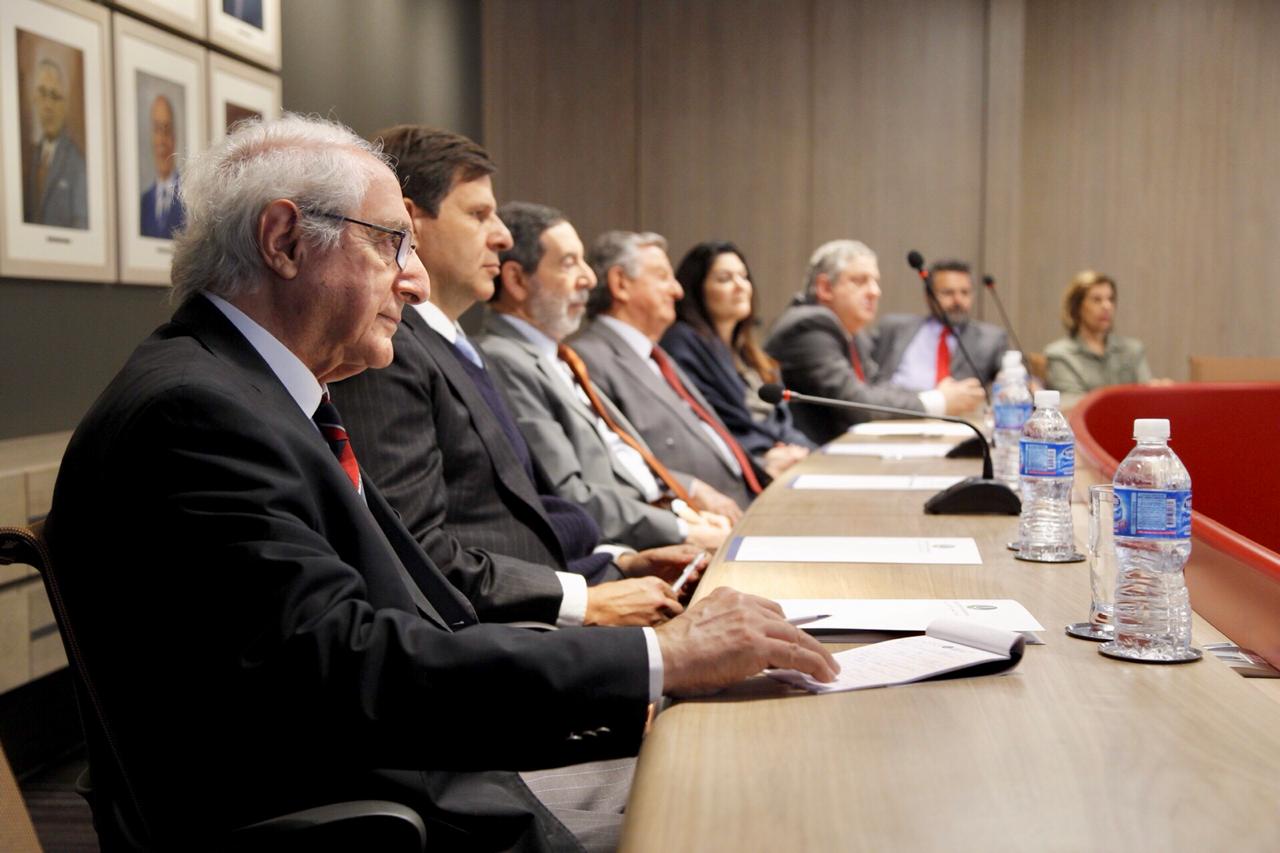
Abreu claims this held true in spite of pressure from powers local and otherwise, and that Brazil does not have a colonial, imperialist past, nor major economic interests or investment in Arab countries, and this helped in achieving a balanced policy. “On the contrary: Brazil welcomed Arab immigrants who adapted and integrated really well, and they do not reflect the region’s conflicts in Brazil,” he said.
Abreu took office as undersecretary general in 2015, as Brazil struggled economically and politically with the impeachment of then-president Dilma Rousseff and the onset of recession. “This undeniably affects foreign policy – not in its ability to conceive and articulate, but in the means for carrying out foreign policy,” he told ANBA.
Despite this scenario, he goes over advances that were made, like the visits of incumbent foreign minister Aloysio Nunes to Arab countries. “Minister Aloysio Nunes Ferreira, an enthusiast of Africa and the Middle East relations, really devoted himself to this,” Abreu told ANBA. Arab leaders also visited Brazil during that time, he said.
Fernando Abreu served as ambassador of Brazil to Amman, Jordan from 2008 to 2012, during which time a Jordanian head of state – king Abdullah II – visited Brazil for the first time, and a Brazilian head of state – then-president Luiz Inácio Lula da Silva – visited Jordan. “It was a very rich experience, not only professionally but personally speaking. Me and my wife made dozens of friends,” he said of his time in Jordan.
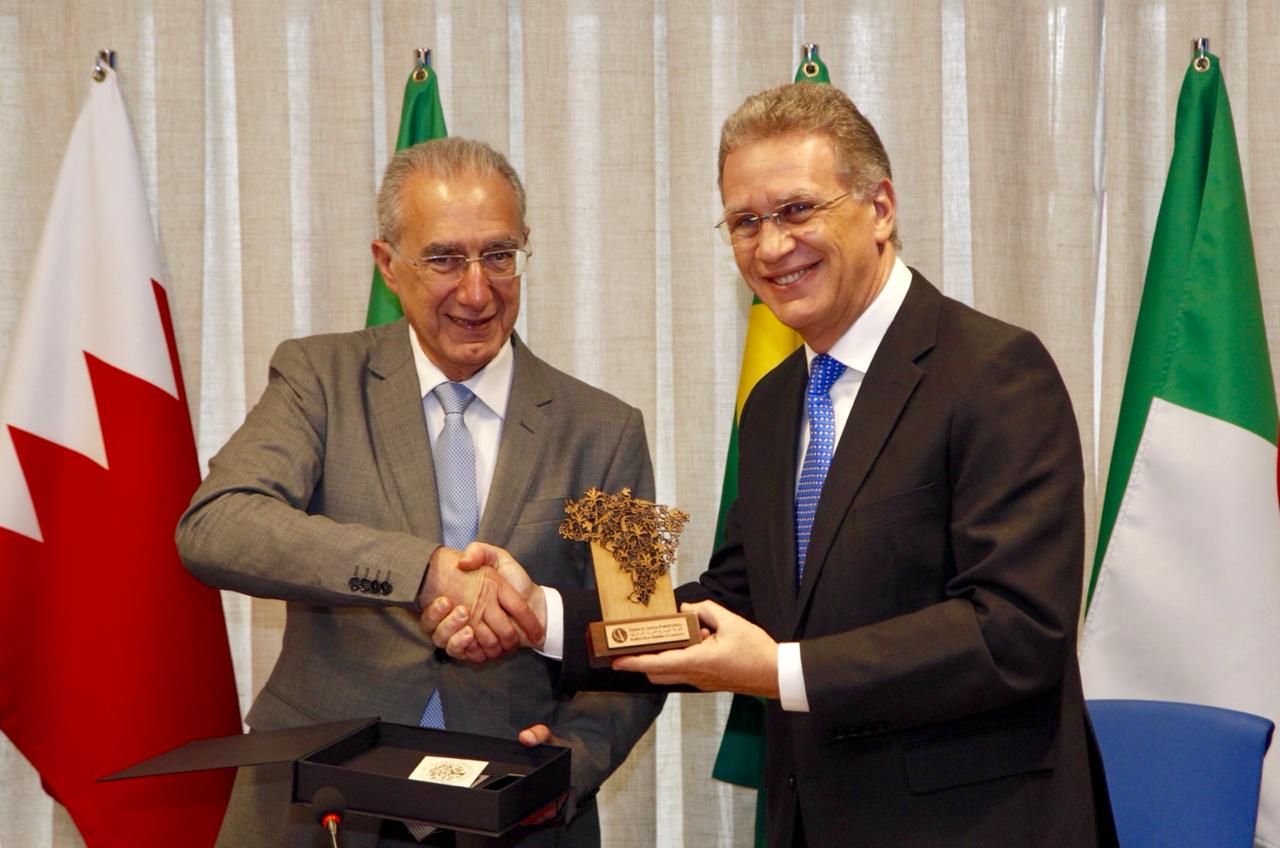
Also speaking to ANBA, Arab Chamber International Relations vice president Osmar Chohfi said Abreu’s time as the Foreign Ministry’s undersecretary general for Africa and the Middle East was crucial for Brazilian foreign policy regarding the Arab world. “Especially for the work of the Arab Brazilian Chamber of Commerce in that part of the world,” he said.
Chohfi said he hopes this productive partnership will not cease as Abreu leaves to Rome. “One of the subjects that concern the Arab Chamber and the Arab world is food security. Brazil is an indispensable, inevitable partner of the Arab world when it comes to food security,” Chofi said, noting that Abreu’s work in the FAO relates to this.
According to Abreu, the FAO occupies itself with food and agriculture and discussions on their future, and this will undoubtedly impact Brazil. “Brazil is an agricultural powerhouse, and it must be very well-centered and prepared to join the debates that will set the rules to this end,” he claims, going on to name topics on this agenda, like pesticides, the environment and Codex Alimentarius – which sets international food standards.
At the meeting with Abreu, Arab Chamber president Hannun traced back the diplomat’s long-standing career and said he is a friend to Arabs. “We are honored to welcome a friend, a friend of the Arab Chamber, a friend of the Arabs,” Hannun said. He said Jordan’s ties with Brazil grew much stronger during Abreu’s stint there and thanked the diplomat for his partnership with the Chamber.
Abreu is a native of São Borja, Rio Grande do Sul and holds a degree in Chemical Engineering from the Federal University of Rio Grande do Sul (UFRGS). With a specialization in Petrochemical Engineering, he worked in Petrobras for a short while before joining the Foreign Ministry. As a diplomat, Abreu graduated in International Relations and Economy from the University of Brasília (UnB) and completed a master’s in Political Science from Paris I (Sorbonne).
He has been stationed in the embassies of Brazil in Paris, Havana and Madrid, in addition to working in human rights and diplomatic planning in connection with international organizations at the Foreign Ministry headquarters in Brasília. Abreu has also retained positions in the ministries of Agrarian Development and Defense, among other activities. He has worked at the FAO before – as first-secretary, some 20 years ago.
In addition to Arab Chamber board members and advisers, Ana Paula Fava, the special adviser on International Affairs to the government of São Paulo, also sat in the meeting at the Chamber. Abreu had lunch with the group, alongside ambassador Débora Vainer Barenboim-Salej – the Foreign Ministry head in São Paulo – and other guests.
Translated by Gabriel Pomerancblum



